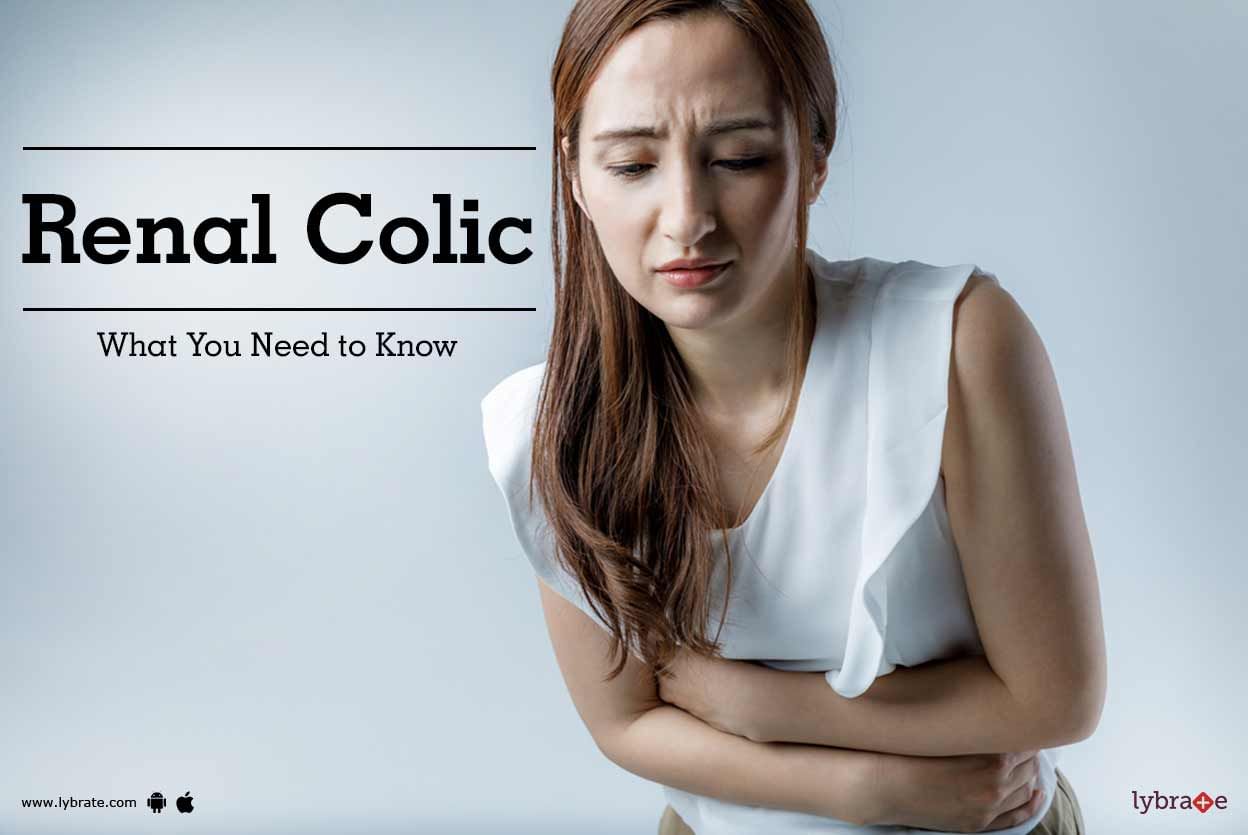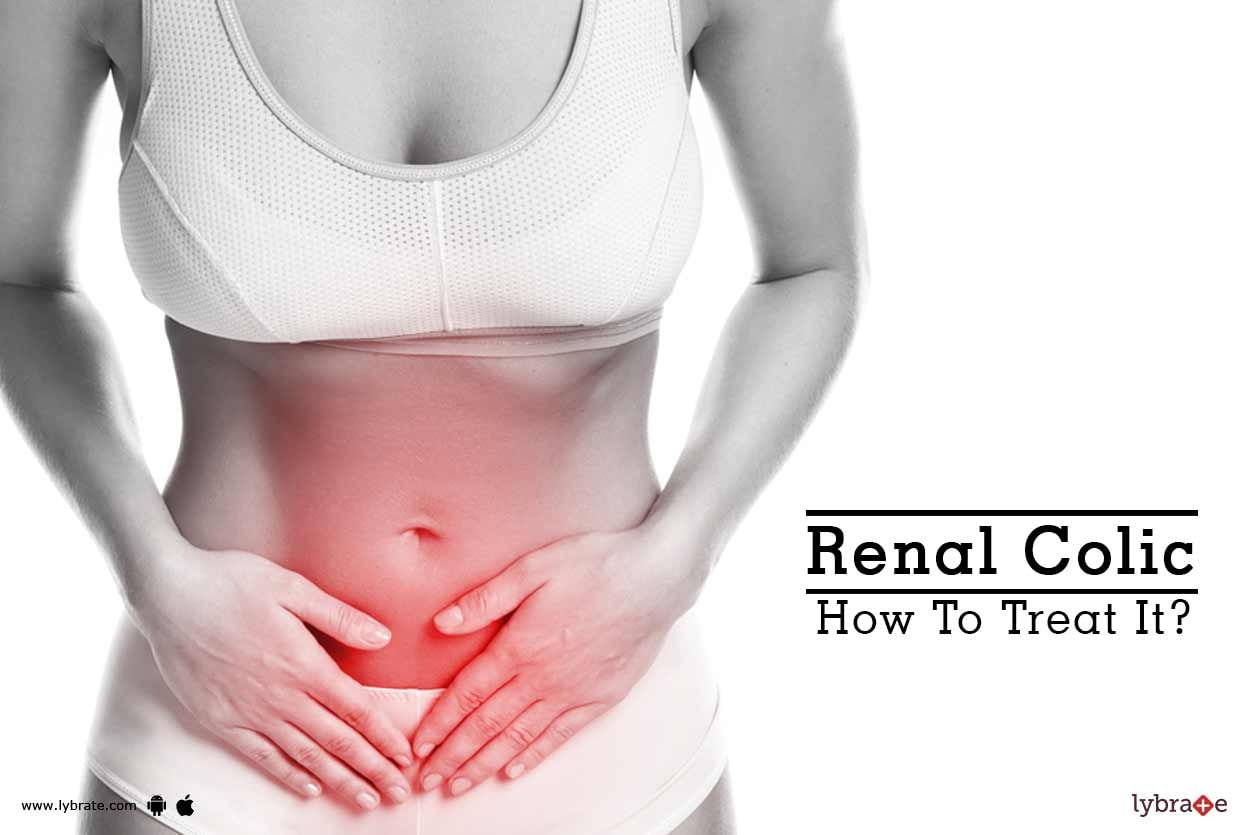Get the App
For Doctors
Login/Sign-up
Health Feed
Find Doctors
Health Packages
AllQ&AsTipsQuizzes
Discount Upto 25% Tips
Last Updated: 7 years ago• Featured Tip
Share
Bookmark
Report
Our kidneys act as filters which constantly flushes out toxins and excess minerals with water in form of urine. Urine contains lots of minerals which may precipitate and form stones. Urine has lots of pro-precipitating agents and anti-precipitating agents. When their balance disturbs due to some disease, stones start forming. These stones may often lead to abdominal pain which is referred to as renal colic.
What exactly is renal colic?
Renal or ureteric colic is the term used...more
What exactly is renal colic?
Renal or ureteric colic is the term used...more
Last Updated: 6 years ago• Featured Tip
Share
Bookmark
Report
Our kidneys act as filters which constantly flushes out toxins and excess minerals with water in form of urine. Urine contains lots of minerals which may precipitate and form stones. Urine has lots of pro-precipitating agents and anti-precipitating agents. When their balance disturbs due to some disease, stones start forming. These stones may often lead to abdominal pain which is referred to as renal colic.
What exactly is renal colic?
Renal or ureteric colic is the term used...more
What exactly is renal colic?
Renal or ureteric colic is the term used...more
Last Updated: 7 years ago• Featured Tip
Share
Bookmark
Report
Our kidneys act as filters which constantly flushes out toxins and excess minerals with water in form of urine. Urine contains lots of minerals which may precipitate and form stones. Urine has lots of pro-precipitating agents and anti-precipitating agents. When their balance disturbs due to some disease, stones start forming. These stones may often lead to abdominal pain which is referred to as renal colic.
What exactly is renal colic?
Renal or ureteric colic is the term used...more
What exactly is renal colic?
Renal or ureteric colic is the term used...more
Last Updated: 7 years ago• Featured Tip
Share
Bookmark
Report
Our kidneys act as filters which constantly flushes out toxins and excess minerals with water in form of urine. Urine contains lots of minerals which may precipitate and form stones. Urine has lots of pro-precipitating agents and anti-precipitating agents. When their balance disturbs due to some disease, stones start forming. These stones may often lead to abdominal pain which is referred to as renal colic.
What exactly is renal colic?
Renal or ureteric colic is the term used...more
What exactly is renal colic?
Renal or ureteric colic is the term used...more
Last Updated: 7 years ago• Featured Tip
Share
Bookmark
Report
Our kidneys act as filters which constantly flushes out toxins and excess minerals with water in form of urine. Urine contains lots of minerals which may precipitate and form stones. Urine has lots of pro-precipitating agents and anti-precipitating agents. When their balance disturbs due to some disease, stones start forming. These stones may often lead to abdominal pain which is referred to as renal colic.
What exactly is renal colic?
Renal or ureteric colic is the term used...more
What exactly is renal colic?
Renal or ureteric colic is the term used...more
Last Updated: 6 years ago• Featured Tip
Share
Bookmark
Report
Our kidneys act as filters which constantly flushes out toxins and excess minerals with water in form of urine. Urine contains lots of minerals which may precipitate and form stones. Urine has lots of pro-precipitating agents and anti-precipitating agents. When their balance disturbs due to some disease, stones start forming. These stones may often lead to abdominal pain which is referred to as renal colic.
What exactly is renal colic?
Renal or ureteric colic is the term used...more
What exactly is renal colic?
Renal or ureteric colic is the term used...more
Last Updated: 6 years ago• Featured Tip
Share
Bookmark
Report
Our kidneys act as filters which constantly flushes out toxins and excess minerals with water in form of urine. Urine contains lots of minerals which may precipitate and form stones. Urine has lots of pro-precipitating agents and anti-precipitating agents. When their balance disturbs due to some disease, stones start forming. These stones may often lead to abdominal pain which is referred to as renal colic.
What exactly is renal colic?
Renal or ureteric colic is the term used...more
What exactly is renal colic?
Renal or ureteric colic is the term used...more
Last Updated: 6 years ago• Featured Tip
Share
Bookmark
Report
Our kidneys act as filters which constantly flushes out toxins and excess minerals with water in form of urine. Urine contains lots of minerals which may precipitate and form stones. Urine has lots of pro-precipitating agents and anti-precipitating agents. When their balance disturbs due to some disease, stones start forming. These stones may often lead to abdominal pain which is referred to as renal colic.
What exactly is renal colic?
Renal or ureteric colic is the term used...more
What exactly is renal colic?
Renal or ureteric colic is the term used...more
Last Updated: 7 years ago• Featured Tip
Share
Bookmark
Report
Jaundice is a medical condition where the bilirubin level shoots up in the blood of the affected person. Also referred to as icterus, the condition may affect adults as well as newborn babies (Neonatal Jaundice), whereby the skin and the white part of the eye (sclera) appears yellowish in color (due to the accumulation of bilirubin).
Bilirubin is the bile pigment that results from the breakdown of hemoglobin (when the RBC cells breakdown). The bilirubin thus produced is released into th...more
Bilirubin is the bile pigment that results from the breakdown of hemoglobin (when the RBC cells breakdown). The bilirubin thus produced is released into th...more
Last Updated: 6 years ago• Featured Tip
Share
Bookmark
Report
Best ayurvedic diet for babies according to Childhood age (balawastha)
This span of life is up to sixteen years of age. at one place it is said to be upto ten years. Yet another even up to thirty years. During this span Kapha is dominant dhatus are immature, body is delicate, cannot tolerate troubles; strength, complexion etc. are not fully explicit. Depending upon growth and development this span is further subdivided under three i.e. Garbha (fetal age), Bala and kumara.
As p...more
This span of life is up to sixteen years of age. at one place it is said to be upto ten years. Yet another even up to thirty years. During this span Kapha is dominant dhatus are immature, body is delicate, cannot tolerate troubles; strength, complexion etc. are not fully explicit. Depending upon growth and development this span is further subdivided under three i.e. Garbha (fetal age), Bala and kumara.
As p...more
194 people found this helpful
Ask a free question
Get FREE multiple opinions from Doctors
posted anonymously





















